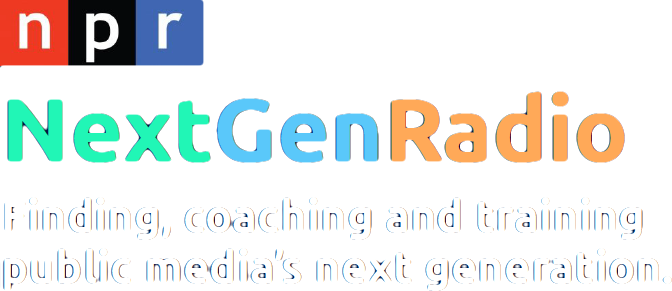
In the time of COVID-19
We are finding, coaching and training public media’s next generation. This #nprnextgenradio project is created in in Oklahoma, where five talented early-career journalists are participating in a week-long state-of-the-art training program.
In this project is a set of audio and digital stories highlighting the experiences of people whose lives have changed dramatically during the pandemic.
Carl Moore is an Indigenous activist who was inspired to become active in Salt Lake City after participating in Standing Rock. Miacel Spotted Elk reports on how Moore is assisting the unsheltered population, which isn’t easy — especially during a pandemic.
Illustration by Ard Su
Indigenous activist helps Salt Lake City’s unsheltered population through direct action
It’s noon on a Saturday at The Island, a moniker given by Salt Lake City’s unhoused population, and today’s menu is hamburger elbow mac. As someone pours tomatoes in a stainless pan glazed with oil, another helper Carl Moore, gets a phone call.
He has to leave.
Shortly after, he is live-streaming an arrest. “I got into a situation where there were two police officers holding four Black people up against the wall,” he says afterward.
Listen to this story
The situation soon escalated to eight police officers. One person was arrested, and the rest were let go.
This is standard for Moore these days. People can call him for assistance or supplies, but he’s often witness to arrests and live-streams them for visibility.
“Salt Lake City is really cracking down on seeing people in tents or on sidewalks, giving people camping citations, no-sleeping citations, sleeping in public places,” Moore said. “It’s definitely escalated a lot, which is unfortunate because this is a time when people have been losing their jobs.”
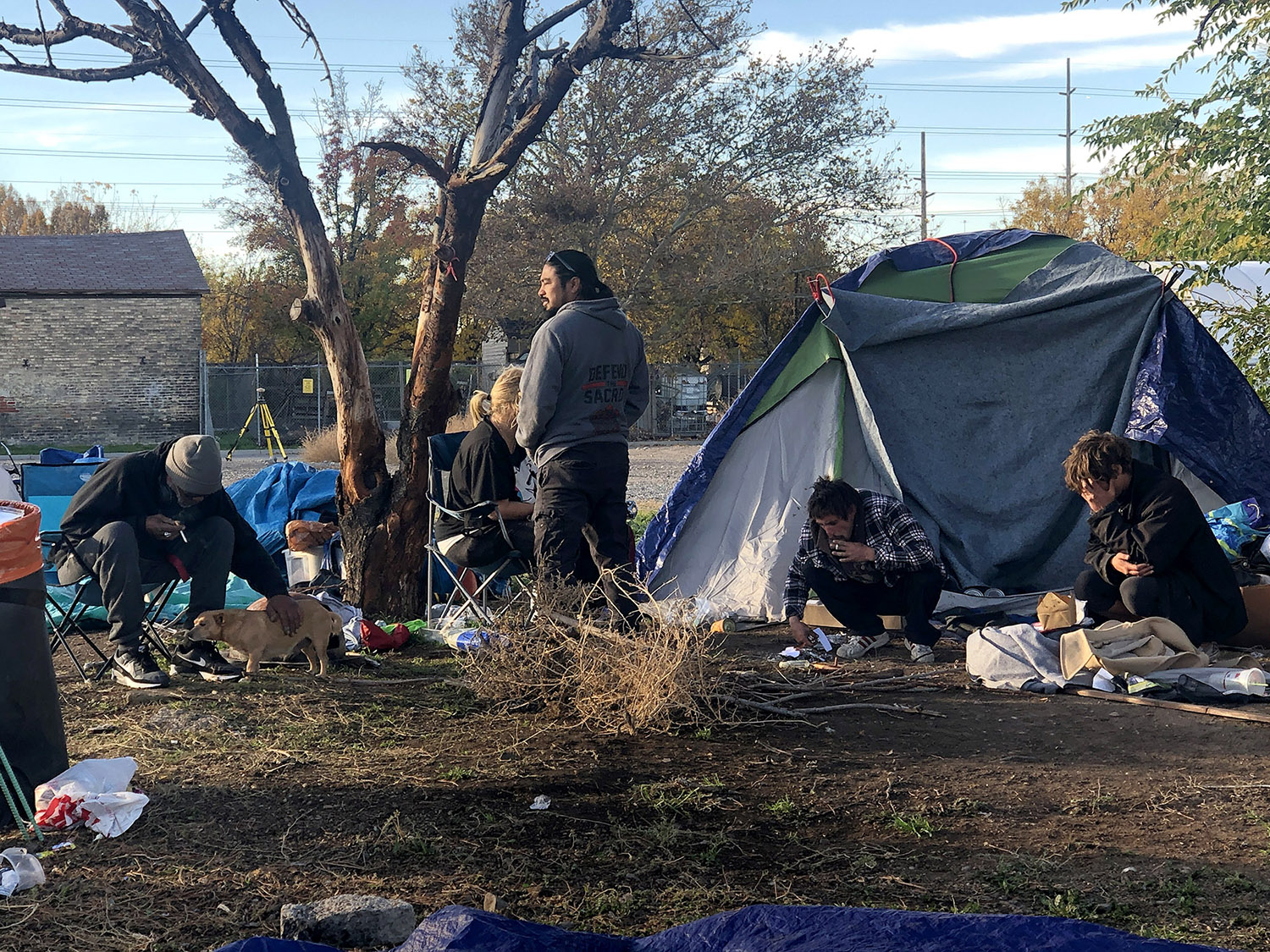
Carl Moore visits a group of people living at an encampment in Salt Lake City on Nov. 4, 2021. (Photo by Miacel Spotted Elk)
Moore, who is Hopi/Chemheuvi, is an activist who works with people experiencing homelessness in Salt Lake City. One year ago, he lost his job at a virtual reality company because of the coronavirus pandemic.
“It was a really good job,” Moore said. “I was well paid, had all the benefits you could ask for, [like] unlimited time off, which actually helped me to do my activism.”
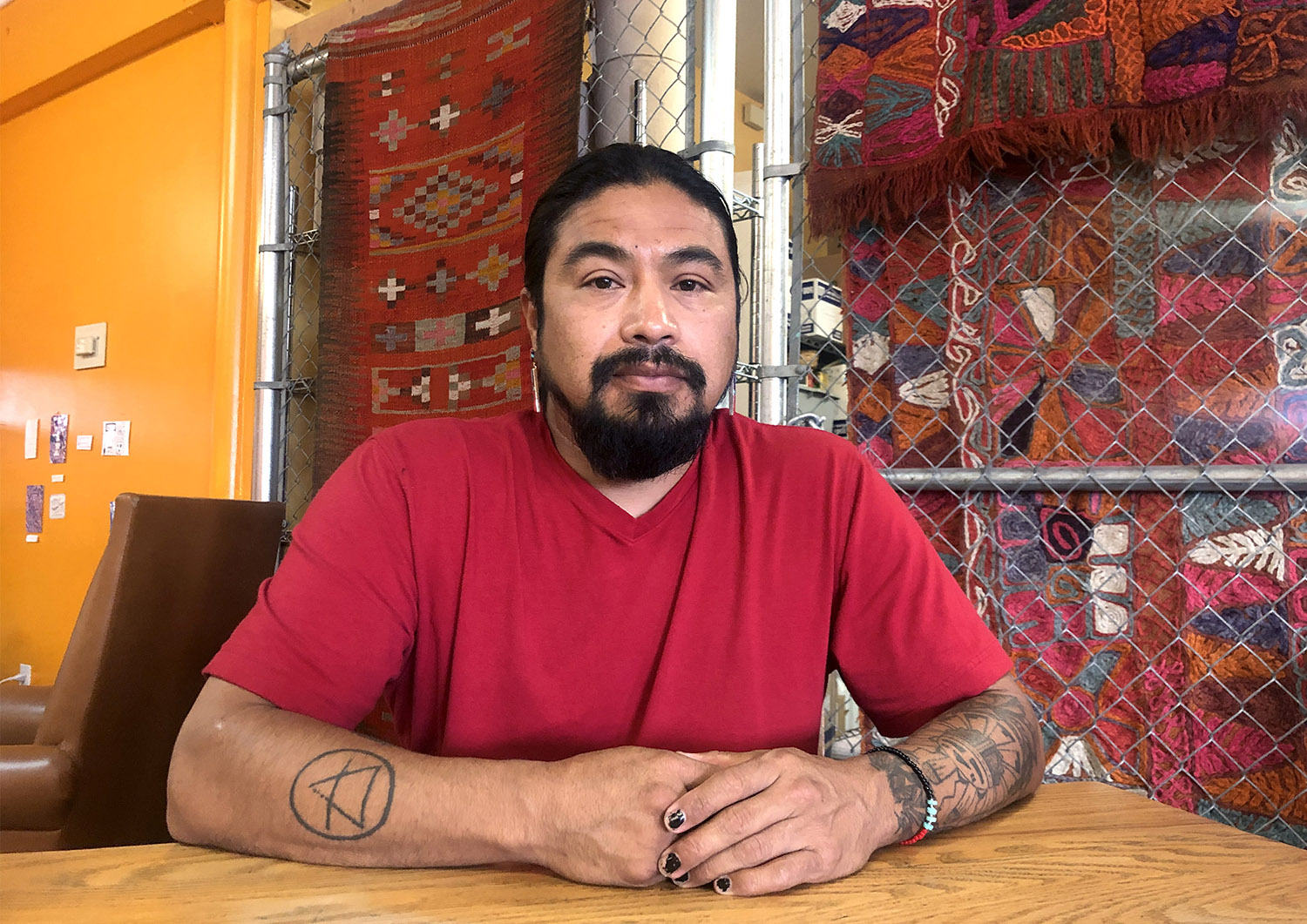
Since then, he has worked as an activist full-time.
Moore has been organizing since 2016, when he put together a rally in Salt Lake City of more than 2,000 demonstrating solidarity with Standing Rock, the movement against the Dakota Access Pipeline organized by Indigenous tribes.
Moore has created two organizations: PANDOS, which advocates for basic human rights, and SLC Air Protectors, which focuses on environmental issues.
Both are Indigenous-led and epistemologically centered. When the COVID-19 pandemic struck, they focused on providing testing kits, food and supplies to tribal communities throughout Utah, especially the southeastern portion of the state in the Navajo Nation.
“So I wake up every day, and I do rounds. I just go, and I check on different communities,” he said. “There’s communities all over Salt Lake City who are unsheltered.”
If people have appointments at the hospital, he’ll drop them off. Or if they just need to buy food, he’ll bring them to the Maverick gas station.
On a recent Thursday morning, several campers smoke cigarettes in a half-circle near a freeway on a barren field patch. A week earlier, people arrived at Goathead Camp, named for the barbs that litter the ground.
Moore pulls up in his green truck to check on them because police have been patrolling the past few mornings. He believes the mayor is in favor of furthering code violation measures that target unsheltered people living on the streets and recommends a moratorium on camping abatements this winter.
“As far as I know, the mayor has declined to make new overflow shelters,” he said. “She’s very much a proponent of people going to other cities or other cities ‘stepping it up.’ ’”
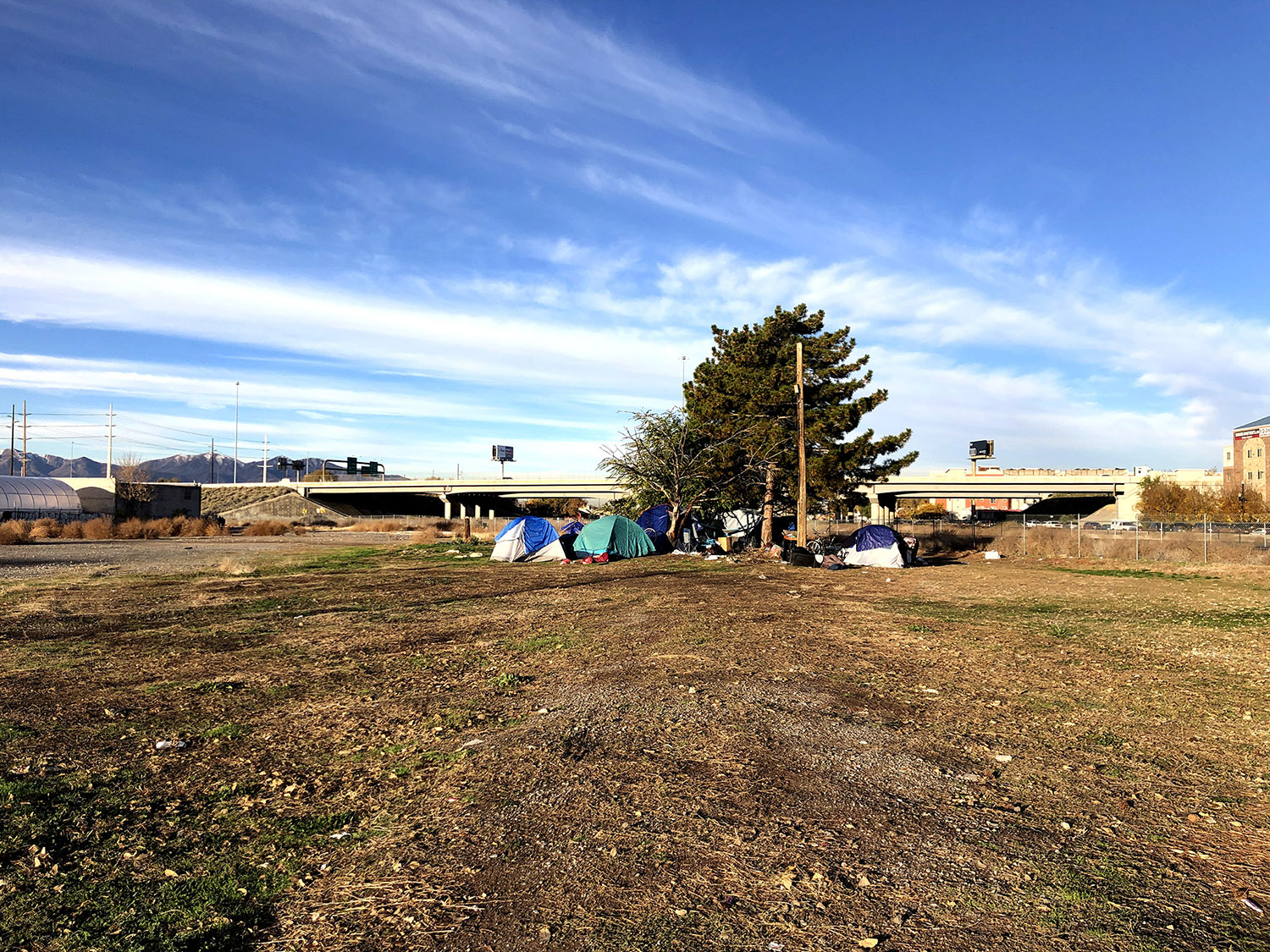
Goathead Camp, a nickname given by unsheltered locals, sits by a busy Salt Lake City freeway, seen on Nov. 4, 2021. (Photo by Miacel Spotted Elk)
Moore knows winter will be stressful.
“People need to survive, they do need to live and they do need to be warm.”
Later in the day, Moore will speak on behalf of a community action group advocating for the homeless and in the city at a rally highlighting his criticism of Mayor Erin Mendenhall on the matter.
For now, he’s focused on the welfare of the people at Goathead Camp. He talks to a woman sitting in a chair at the camp, wishing her goodbye before walking back to his vehicle to depart.
“Love you!” she said. “Love you too,” Moore replied.
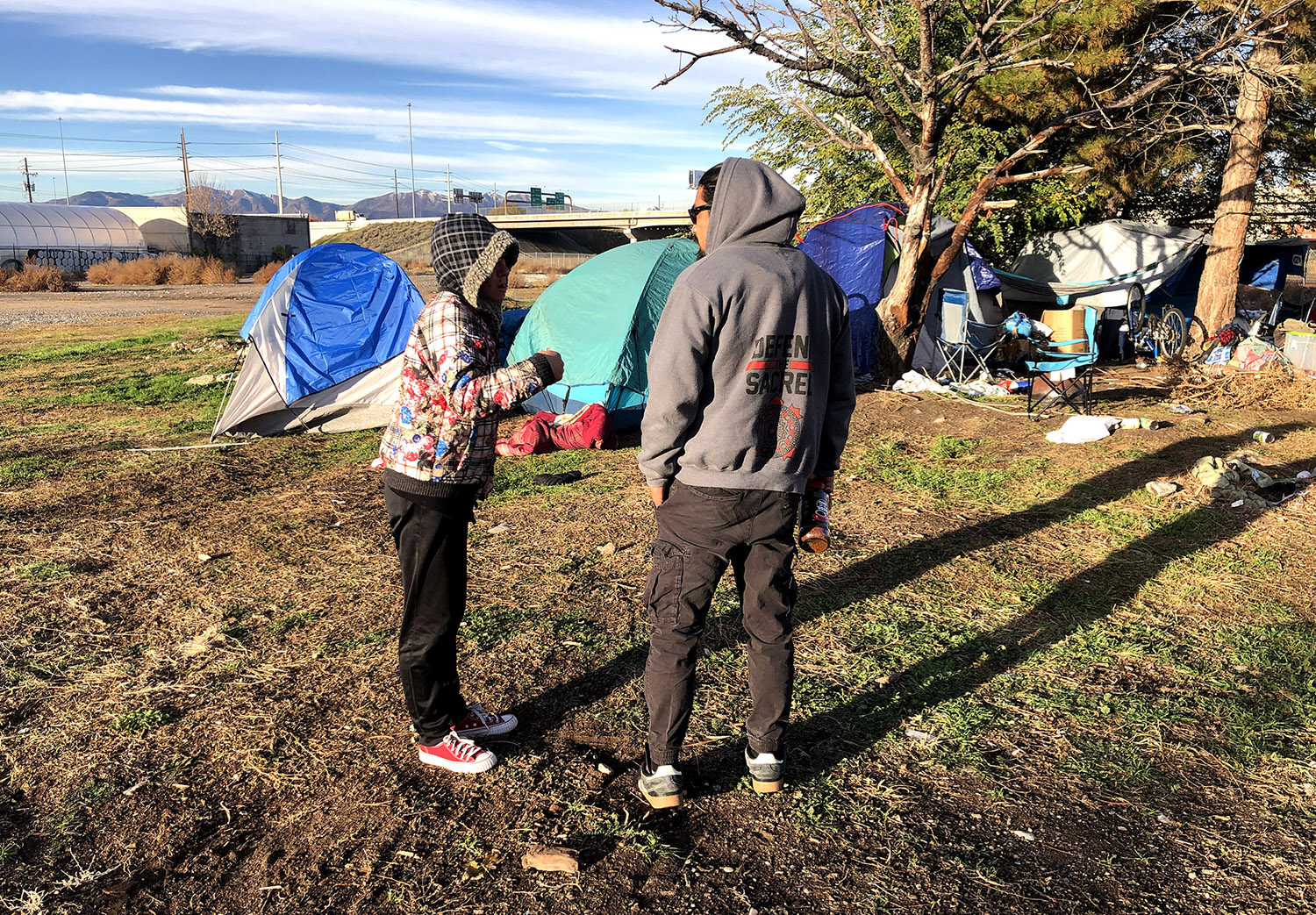
Carl Moore talks with a woman at a camp in Salt Lake City where unhoused people live on Nov. 4, 2021. (Photo by Miacel Spotted Elk)
